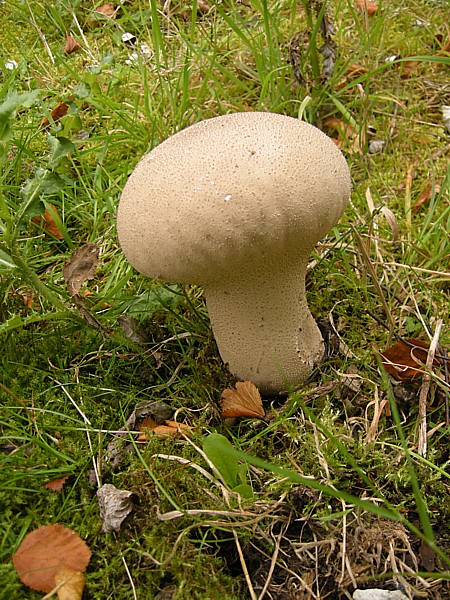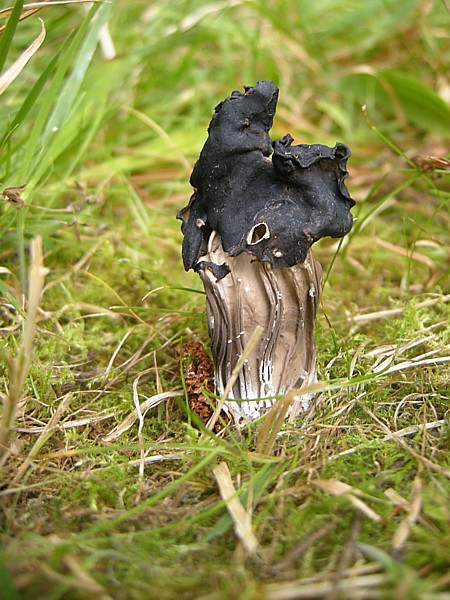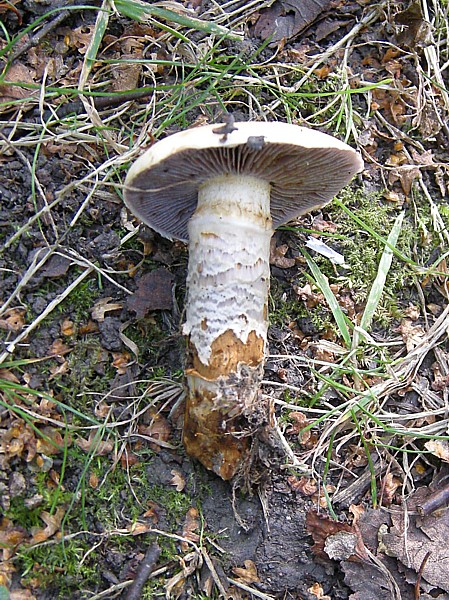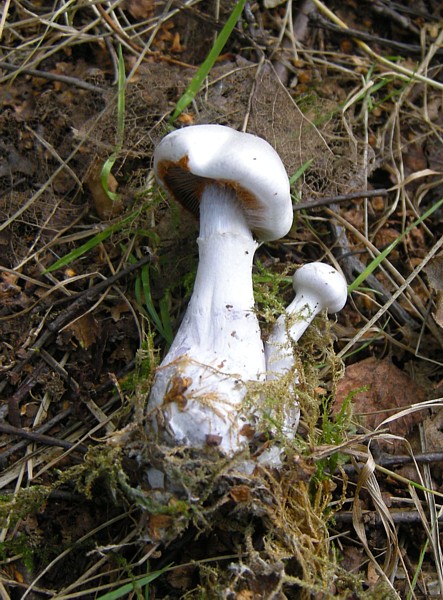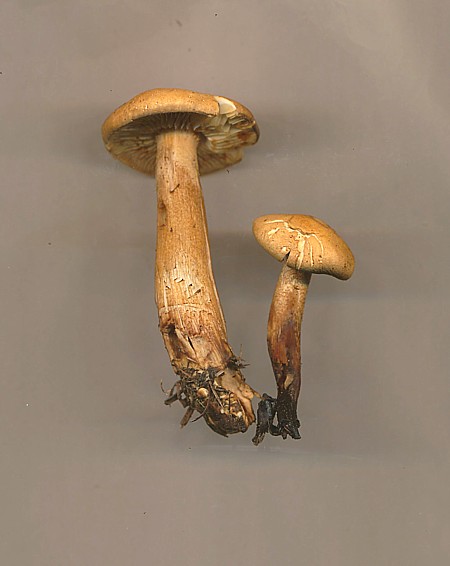Tony Carter reports: A cool day for the North West Fungus Group foray. Although conditions were dry there were still plenty of fungi to be found. This is a very new piece of woodland, planted on the site of the old colliery and the ground is more acidic than other local sites, so it was interesting to discover what species it might support.
Starting in the car park we found a large patch of Lactarius pubescens (Bearded Milkcap). This species was growing just about everywhere a pine tree grew. Further along the path we came across a close but more colourful relative, Lactarius torminosus (Wooly Milkcap) that prefers birch woodland. This was quickly followed by another pine lover, Lactrius deliciosus (Saffron Milkcap).
The boletes were also well represented by Suillus luteus (Slippery Jack), Suillus grevillei (Larch Bolete) and an uncommon Suillus viscidus (Sticky Bolete).
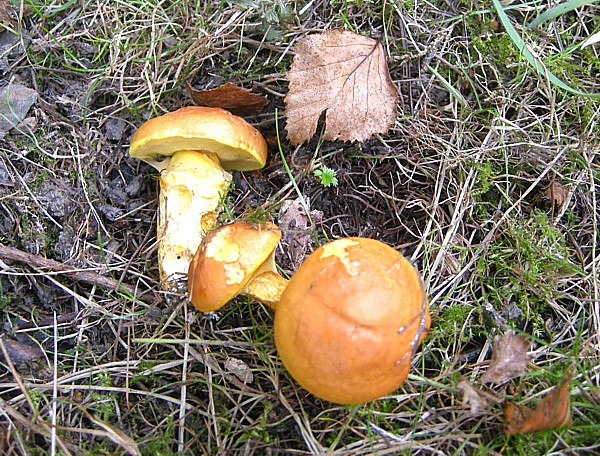
Suillus grevillei (Larch Bolete)
We identified a lot of the more common fungi such as Amanita muscaria (Fly Agaric)and rubescens (Blusher), Lactarius turpis (Ugly Milkcap) and glyciosmus (Coconut Milkcap)and quickly had recorded over fifty species including a number of grassland fungi such as waxcaps and puffballs such as a very large Lycoperdon excipuliforme (Pestle Puffball). Also a lone Helvella lacunosa (Elfin Saddle).
Lycoperdon excipuliforme (Pestle Puffball)
Helvella lacunosa (Elfin Saddle)
The most interesting finds were of Cortinarius, a difficult genus to identify even with a microscope. Fortunately these had very clear distinguishing features, Cortinarius trivialis (Girdled Webcap) and Cortinarius alboviolaceus (Pearly Webcap).
Cortinarius trivialis (Girdled Webcap)
Cortinarius alboviolaceus (Pearly Webcap).
Also found were Tricholoma terreum (Grey Knight), Tricholoma fulvum (Birch Knight) and a very uncommon Tricholoma psammopus (Larch Knight) that has not previously been recorded locally.
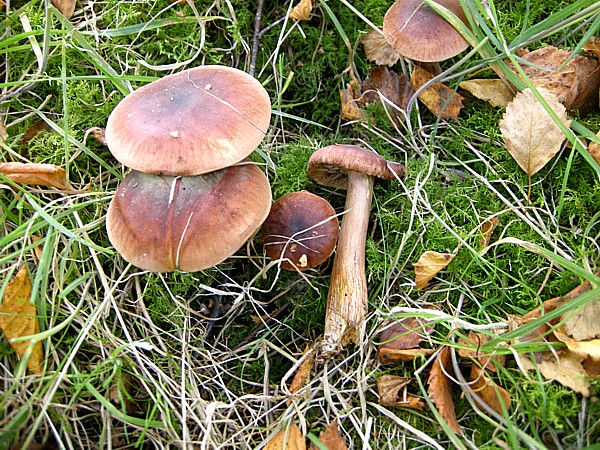
Tricholoma fulvum (Birch Knight)
Tricholoma psammopus (Larch Knight)
Considering that this land was only reclaimed in the late 1990s, we were surprised by the diversity and numbers of fungi that could be found. If we had been able to visit a week earlier, before it got so dry, we would have found even more.

